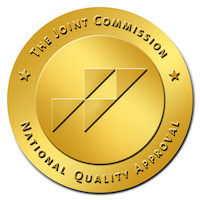Total Joint Replacement

The Total Joint Replacement Program at Memorial Medical Center – a recipient of the Gold Seal of Approval for Joint Replacement (hip and knee) from The Joint Commission – helps patients to regain mobility and return to their activities of daily living, whether that means running errand or running marathons.
The Total Joint Replacement Program takes an interdisciplinary approach to patient care. A team of skilled professionals – including orthopedic surgeons, anesthesiologists, specially-trained nurses, specially-trained patient care technicians, physical therapists, case managers and occupational therapists – work together to develop and implement treatment plans for each patient.
Looking for relief from joint pain?
Answer a few questions to see if you should speak with a provider about finding the right treatment to help put the go in your get-up-and-go again.
Total Joint Replacement at Memorial Medical Center
Empowerment. Encouragement. Support. Patients who come to Memorial's Total Joint Replacement Program are surrounded by an atmosphere of caring, comfort, and complete understanding. The Total Joint Program provides comprehensive preoperative and postoperative rehabilitation services for patients undergoing Total Hip Replacement and Total Knee Replacement surgeries. The center is staffed by a multidisciplinary team of rehabilitation specialists, including physicians, specially-trained nurses, physical therapists, case managers, and orthopedic patient care technicians. Working together, these skilled professionals provide a full complement of patient services:
- Weekly Group Preoperative Education Class
- Special Instruction for Coaches/Family Members
- Advance Planning for Hospital Stay & Post-Hospital Care
- Dedicated Orthopedic Unit
- Individual Physical Therapy Sessions Twice Daily
Total hip and knee replacement surgeries generally take from two to three hours and involve affixing an artificial joint made of metal and plastic to the bone. After surgery, patients stay on the dedicated Orthopedic Unit, where recovery and rehabilitation begins.
A Totally Different Approach
At Memorial Medical Center, our goal is to get you back on your feet, both physically and psychologically. For that reason, our staff will not approach you as a "sick patient," but one who has elected surgery to help improve their quality of life. This means:
- Our staff will work to help you develop and maintain a positive outlook throughout the rehabilitation process.
- Your energies will be focused on maximizing functional mobility.
- You will always play a very active role in your healthcare. In fact, you may be allowed to administer your own pain medication, up to a maximum amount as determined by your doctor.
- By promoting a philosophy of motivation and empowerment, MMC’s Total Joint Replacement Program provides a different level of care that inspires patient success.
A Totally Different Beginning: Preoperative Education Services
Memorial's staff begins working with patients before their scheduled surgery. The Total Joint Coordinator provides a special preoperative class for patients, their coach and/or family. That way, everyone knows what to expect before, during and after the procedure. Classes are designed to address:
- Safety precautions
- Deep vein thrombosis (blood clots) prophylaxis
- Getting out of bed
- Transfer techniques
- Weight-bearing status
- Gait training with use of a walker
- Exercise
- Fall prevention
- Ensuring a safe home environmen
- Potential postoperative complications
- Pain management
A Totally Different Recovery: Postoperative Rehabilitation
Physical Therapy
Patients will receive morning and afternoon physical therapy daily. The first day after surgery, patients will be evaluated in the morning and participate in an individual session in the afternoon. From that point forward, sessions are conducted twice daily where patients perform different exercises, practice correct transfer techniques, and learn to walk and move about with assistive devices.
Surgeons recommend continuing physical therapy at home. For those who require further assistance, arrangements can be made for home health care or transition to a skilled nursing facility or a rehabilitation hospital.
Most patients are discharged three to four days following surgery. However, patients may stay longer if necessary.
Total Involvement for Family and Coaches
We realize that family members and coaches play a crucial role in the recovery process. Family members and coaches are encouraged to participate in our preoperative education class as well as in physical therapy sessions. These provide important instruction on how to care for patients recovering from Total Hip and Total Knee Replacement surgery.
